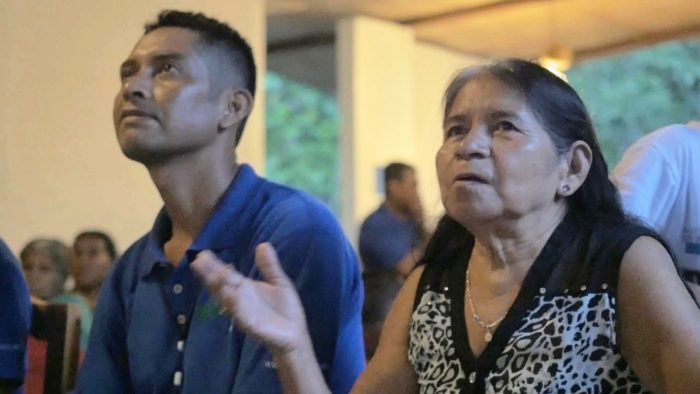Publications

Participants respond to Teatro Foro
Conference
1.- Olvera-Hernández S., Martin-Ortega J., Novo P., Walsh A., Mesa-Jurado A., Holmes G., and Borchi A. (6-8 Noviembre 2019). Performing fundamental values as an emancipatory mechanism to fostering inclusive participation in environmental governance. Urgent Transformations and Earth System Governance: Towards Sustainability and Justice Conference, Oaxaca Mexico.
Abstract
Inclusive participation in decision-making has been a constant challenge on environmental governance in rural communities in the Global South, reflecting power structures that exclude people on the basis of the intersection of economic status, ethnicity, education level, age and gender. Environmental governance and how it plays out in practice is fundamentally determined by the value frames, emotions and relationships of those involved. However, value judgements of those most affected by environmental decisions are rarely shared and discussed. For decision-making to be genuinely inclusive it is necessary that those who are usually excluded are able to express and make visible their values. Only in this way, decisions regarding the natural resources on which they critically depend can reflect their worldviews.
To address this challenge, new approaches that enable those in the lowest positions of power to reflect, share and make their values visible are needed. Art-based methods, and more specifically performance-based methods, provide alternative means of communicating and sharing which can be particularly relevant in the context of marginalized communities. A critical performance enables people to identify issues, bring hidden narratives to consciousness and activate different solutions or responses. This allows the implementation of reflexivity or meta-reflections to create debates about the distribution of power in environmental policy and cultivate shared values frames, emotions and affects. In this paper, we present the preliminary results of applying one of such performance-based techniques, Forum Theatre, in two rural communities in Chiapas (Mexico). By activating and cultivating reflexivity, Forum Theatre can act as an emancipatory mechanism that ultimately has the capacity to foster inclusive participation and induce broader social transformations for more sustainable, effective and just natural resource management.
For further information contact Silvia Olvera-Hernández, at eeseoh@leeds.ac.uk
Paper
Valuing trans-disciplinarity: Forum Theatre in Tabasco and Chiapas, Mexico.
Year: 2022
Authors: Walsh, A., Olvera-Hernandez, S., Mesa-Jurado, M. A., Borchi, A., Novo, P., Martin-Ortega, J., & Holmes, G.
Journal: Research in Drama Education: The Journal of Applied Theatre and Performance, 1-19.
Abstract:
